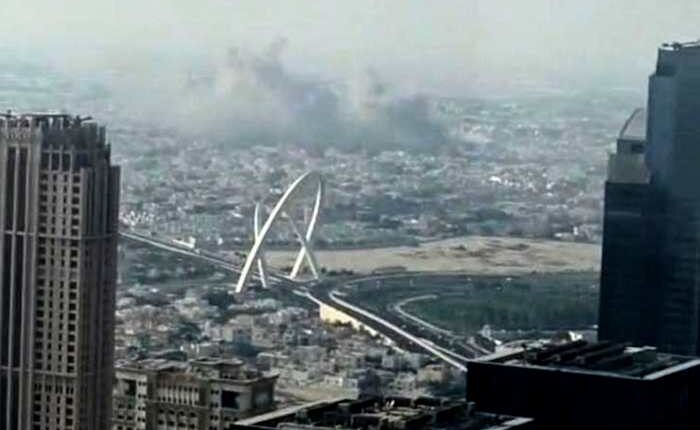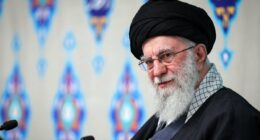Share this @internewscast.com

DOHA – On Wednesday, Qatar was still dealing with the aftermath of an Israeli assault that had targeted Hamas political leaders meeting in the capital, considering a U.S. ceasefire initiative for the Gaza Strip.
Local media in Qatar adhered closely to official statements following the Tuesday strike, which resulted in at least six casualties in a Doha district that hosts foreign embassies and schools. As with other Gulf nations, speech is heavily regulated in Qatar, ruled by a hereditary emir.
The attack on a U.S. allied nation was met with broad criticism across the Middle East and elsewhere. It represented a significant intensification of the conflict and posed a threat to ceasefire negotiations and efforts to secure the release of hostages held by Hamas in Gaza.
In a statement Tuesday, Hamas claimed that its senior leaders were unharmed, though five lower-ranking members, including Khalil al-Hayya’s son, key for Gaza leadership and negotiations, as well as three bodyguards and his office head, were killed. Hamas, which occasionally delays confirming leader assassinations for months, did not immediately provide evidence of survival for al-Hayya and other officials.
Al Jazeera, the assertive satellite channel funded by Qatar, labeled the attack in its coverage as an act of “brutal aggression.” Israel has prohibited Al Jazeera operations within its borders and the West Bank amid conflict with Hamas, but its journalists continue reporting from the Gaza Strip.
The Qatar News Agency reported that the nation’s ruler, Sheikh Tamim bin Hamad Al Thani, conducted multiple discussions with global leaders, including U.S. President Donald Trump.
Sheikh Tamim condemned the attack and according to a readout of the call, said that Qatar holds Israel “responsible for its repercussions, in light of the policy of aggression they adopt that threatens the region’s stability and obstructs efforts to de-escalate and reach sustainable diplomatic solutions.”
Qatar Airways, a major East-West airline that operates out of the country’s massive Hamad International Airport, sought to assure passengers their flights were safe and would not be interrupted.
Qatar maintains a major arsenal of air defense systems, including both American-made Patriot and Terminal High Altitude Area Defense, or THAAD batteries.
However, it doesn’t immediately appear that Qatari air defenses engaged during the attack.
Sheikh Mohammed bin Abdulrahman Al Thani, Qatar’s prime minister and foreign minister, said Tuesday night that “the Israeli enemy used weapons that were not detected by radar.”
He did not elaborate but the statement suggests Israeli fighter jets could have launched so-called “stand-off” missiles at a distance to strike the site without actually entering Qatari airspace — possible over the Persian Gulf.
The United States has said it warned Qatar before the strike. Qatar disputes that, with Sheikh Mohammed saying that “the Americans sent a message 10 minutes after the attacks took place, saying they were informed that there was going to be a missile attack on the state of Qatar.”
Qatar is also home to the U.S. military’s forward headquarters for its Mideast-based Central Command. The headquarters, located at the sprawling Al-Udeid Air Base, also has American-run radars and defense systems and recently hosted Trump on his tour of the region in May.
Copyright 2025 The Associated Press. All rights reserved. This material may not be published, broadcast, rewritten or redistributed without permission.











